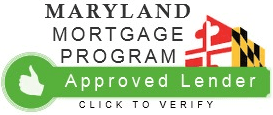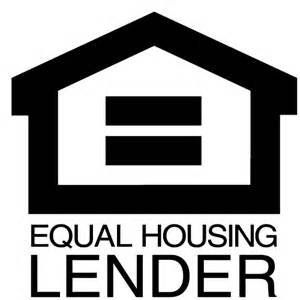2023 Maryland Reverse Mortgage
Maryland Reverse Mortgages
A 'Reverse Mortgage' is the common name for a federally-insured product called the Home Equity Conversion Mortgage (HECM).
FHA (HUD) requires the youngest borrower on the loan be 62 years or older. In addition, the borrower must meet certain income requirements and may have to meet certain credit requirements.
In Maryland, here are the typical homes types that are allowed for Reverse Mortgages: May be an owner-occupied single family, townhouses and approved FHA condo. Manufactured homes maybe eligible for a reverse mortgage loan. A home must meet FHA minimum Maryland property standards for lending.
Understanding a Maryland Reverse Mortgage.
The typical goal of a reverse mortgage is to eliminate the monthly payment on a mortgage and/or get cash out of the home for medical bills, pay off debts or use as needed without having a monthly mortgage payment.
The homeowner is still responsible for the property tax, condo fees and insurance fees.
There may be a "set aside"called a "L.E.S.A." (Life Expectancy Set Aside). This will be set up as part of the funding of the reverse mortgage. It will be money set aside to protect against defaulting on the homeowners bills due for property tax and insurance. Not all reverse mortgages have 'set-asides', but it may be required.
In order to help protect borrower(s), the Government has required all residents in a home to receive counseling and a certificate prior to any reverse loan consumation. The Lender may be able to provide a list of counseling programs. In certain situations, special accommodations may be made for those that have difficultly participating (see Lender for details). In addition, there are cases that may require family members to participate in the counseling. The goal is to prevent fraud and to make sure the homeowner is not being taken advantage of by an unscrupulous lender.
How does a Reverse Mortgage 'come due'?
If the borrower(s) in the home passes away or leaves the residence (sale included), the borrower(s) or their heirs/estate can choose to repay the reverse mortgage loan and keep the home. They may also be able to list the home and sell it. At settlement, they must pay off the balance due on the Reverse. If the home settles for more money than is on the balance of the reverse mortgage loan, the remaining monies go to them/heirs/estate. There are additional situations that the lender can discuss. You can also learn more at the National Reverse Mortgage Lenders Association information page : "What to do when my loan is due?".
What happens if the home sells for less than is due on the reverse mortgage?
It may happen that when an heir or estate sells the home, the proceeds from sale DO NOT cover the balance of the reverse mortgage.
Well, a Reverse Mortgage in Maryland is a “non-recourse” loan. So once the home is sold and proceeds are sent to the reverse lender to pay the debt, any amount remaining owed on the balance is not required to be paid. The loan balance or the value of the property, whichever is less, is what is to be paid the lender. The home is the only instrument used to pay off the debt.
Important notice about a Reverse Mortgage
- If a borrower fails to pay property taxes, homeowners insurance and/or maintain the property the reverse may be defaulted and due. It is critical for a borrower to understand that they still have to maintain the home and have money for taxes, insurance and property related fees.
A Reverse Mortgage in Maryland should only be done with a clear understanding of the homeowner(s) complete situation.
Do not be afraid of a reverse mortgage as it can be a wonderful tool to help relieve debts, eliminate monthly payments and help make the golden years easier. But borrower(s) and their family should take care to only work with licensed lenders. For years many elderly borrowers fell victim to losing equity in homes due to HECM-TO-HECM refinancing. The good news is that Government has created stricter equity guidelines, set-aside requirements and title requirements to help protect the borrower(s). In addition, family members can also participate in the counseling. Let us help you see if a Maryland Reverse Mortgage will work!
Tip for reverse mortgage shoppers - Recently private lenders have been offering reverse mortgages that are NOT insured by FHA. In Maryland, these loans should still be required to follow HECM guidelines set by HUD. In other states this requirement may not exists for NON-FHA INSURED reverse mortgages, so be sure to check if a reverse loan meets FHA requirements. These requirements are designed to protect the borrower!
This is a brokered product offered by Freedmont Mortgage Group on primary residences only. A Home Equity Conversion Mortgage (HECM) is also referred to as a Reverse Mortgage or Negative Amortization Loan. If you qualify and your loan is approved, the HECM loan must pay off your existing mortgage. HECM loans have unique features regarding monthly payments, property taxes, homeowners insurance and other qualification requirements. You must complete HECM counseling with an independent counseling agency.





